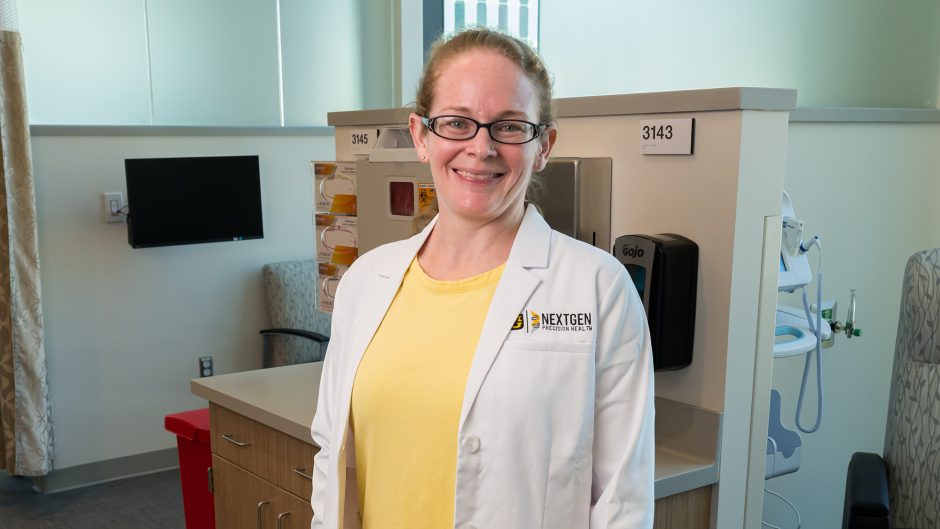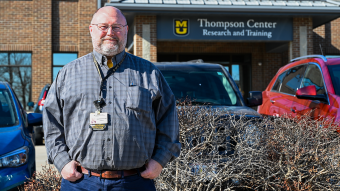
Jan. 17, 2024
While she was a neurologic physical therapy resident, Kris Kelly saw several patients with different neuromuscular diseases. After reviewing existing literature for exercises or physical therapy to help treat their conditions, Kelly quickly discovered the lack of research into these rare diseases.
“I pulled pieces together from different places and was always excited to see how much improvement they made,” Kelly said. “But it's hard for people with neuromuscular conditions to get that kind of treatment, and because it is difficult to find therapists with the right expertise, they don't always seek out therapy, so they potentially are worse off than they would be otherwise.”
A mixture of curiosity and forging new treatment paths motivated Kelly, now an assistant research professor in the University of Missouri’s Department of Physical Medicine and Rehabilitation. It also launched her hands-on investigations into exploring neuromuscular diseases, their causes and treatments.
Kelly’s research is bounding forward with new clinical trials in the Roy Blunt NextGen Precision Health building, which opened in late 2021. Using the research center’s Clinical and Translational Science Unit (CTSU), Kelly is pursuing precision health advancements to uncover a better future for the health of Missourians and beyond.
“The facilities are second to none,” Kelly said. “It's a brand new unit equipped with the rooms, labs and equipment for this type of research. It's impressive, and it gives us a lot of capacity to do several types of projects.”
Kelly’s research focuses on fatigue and exercise in neuromuscular disease, including understanding the relationships between disease pathophysiology and motor function. She also investigates effective physical therapy interventions with the goal of modifying the impact of neuromuscular disease progression and aging on function and health span.
A neuromuscular disease Kelly is particularly interested in is myasthenia gravis, a chronic autoimmune neuromuscular junction disorder that causes weakness in the skeletal muscles in the neck, arms and legs and can impact eye and eyelid movement, facial expressions, chewing, talking and swallowing.
“It can be very debilitating and difficult just to get through the things you need to do every day,” Kelly said. “People can struggle with walking for any lengthy period or holding their arms overhead when putting away dishes. And then, as years pass, muscle fatigue can transition into a more severe chronic fatigue issue where there's this overwhelming sense of weakness and tiredness that makes it hard to maintain effort in everyday activities.”
The CTSU space in the NextGen Precision Health building allows Kelly’s inquisitive research to seek new answers to myasthenia gravis and other neuromuscular diseases. The facility also unlocks the power of MU’s experiential research, a journey that could uncover better lives for all.
“NextGen researchers are exploring precision health solutions for society's toughest diseases,” said Scott Rector, director of the NextGen Precision Health building. “The Roy Blunt NextGen Precision Health building is the cornerstone of the systemwide initiative, designed from the ground up to facilitate the complete life cycle of research.”
Read more from the Division of Research, Innovation and Impact


